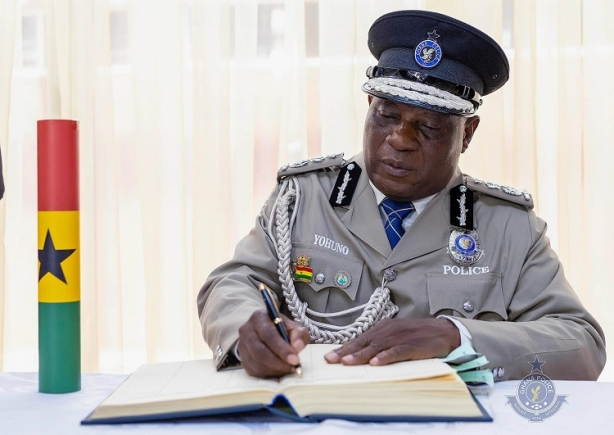Prominent civil rights activist Oliver Barker-Vormawor has criticized Inspector General of Police Christian Tetteh Yohuno for allegedly using state resources to pursue personal grievances, warning the approach damages the Mahama administration’s reputation.
Barker-Vormawor’s intervention follows the remand of NPP Bono Regional Chairman Kwame Baffoe, known as Abronye DC, for one week by an Accra Circuit Court on Friday, September 12, 2025, over charges of offensive conduct and publication of false news.
The lawyer and Democracy Hub convener argued that Abronye’s arrest on September 8 under charges of “offensive conduct conducive to the breach of the peace” represents misuse of police powers for settling personal disputes rather than legitimate law enforcement.
“From what I have gathered so far, the Government does not support the prosecution of Abronye, or think it to be necessary at this stage,” Barker-Vormawor stated in a social media post, suggesting the IGP acted independently without executive backing.
The activist recommended that if the police chief considers Abronye’s statements defamatory, he should pursue civil litigation like any ordinary citizen rather than deploying criminal justice machinery.
“Using the police to settle personal insults, and now creating ridiculous visual imagery as if he is some war criminal or Hannibal Lecter is causing unnecessary attention and dis-affection for the Government,” Barker-Vormawor wrote, referencing Abronye’s court transport arrangements.
The case stems from Abronye DC’s alleged offensive statements during a live broadcast on September 3, 2025, on a program called “The Evidence” on Ohia TV. The content reportedly included serious allegations against the IGP and opposition figures.
During Friday’s court appearance, Abronye pleaded not guilty to charges of publication of false news and offensive conduct but was denied bail and remanded until September 19, 2025.
Barker-Vormawor’s criticism extends beyond this specific case, reflecting broader concerns about potential abuse of state apparatus for political or personal purposes under the new administration.
The activist, known for his anti-galamsey protests and criticism of government policies, has previously faced arrests himself, giving his commentary particular resonance regarding police conduct and democratic rights.
Political observers note the delicate balance the Mahama government must maintain between enforcing laws and avoiding perceptions of political persecution, especially involving opposition figures like Abronye DC.
The case highlights ongoing tensions between free speech protections and maintaining public order, particularly regarding inflammatory political rhetoric in Ghana’s polarized environment.
Legal experts suggest the matter tests judicial independence and proportionality in applying criminal sanctions for speech-related offenses in Ghana’s democratic framework.
Source: newsghana.com.gh











